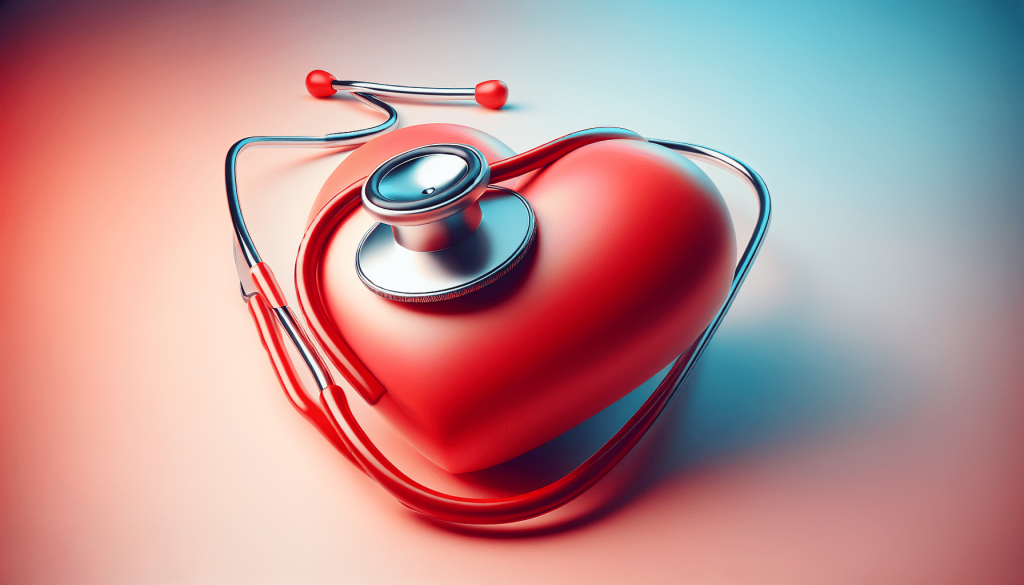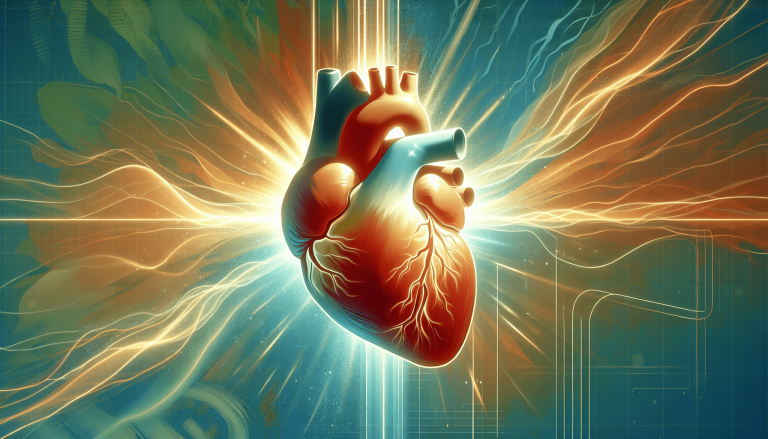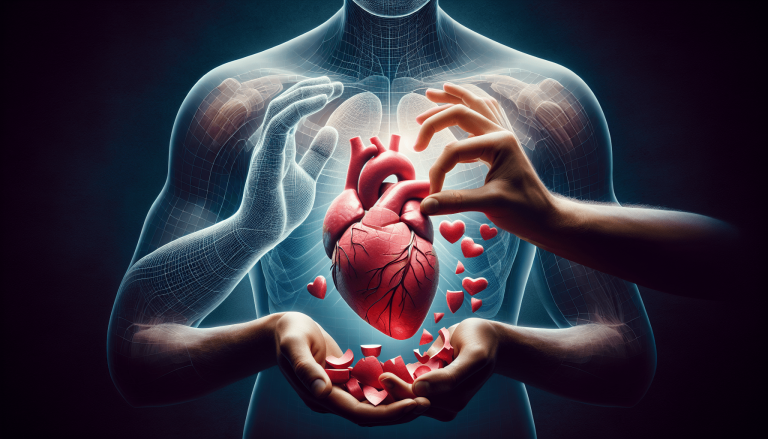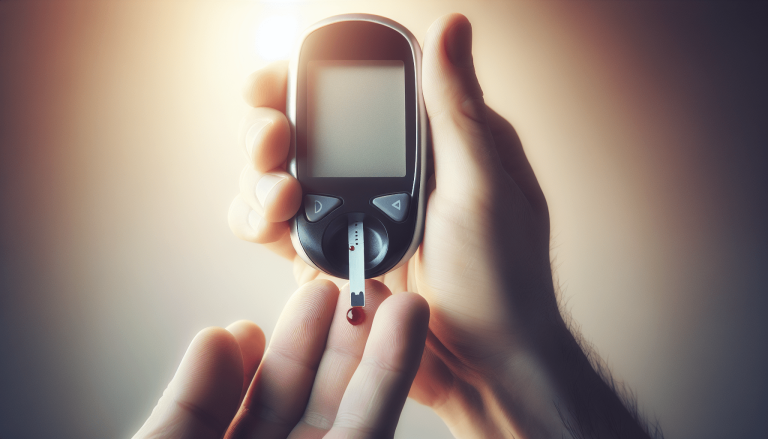What Are 3 Early Warning Signs Of Heart Disease?
Heart disease can often sneak up on you, but there are early warning signs you can watch for to catch it before it becomes a serious issue. In “What Are 3 Early Warning Signs Of Heart Disease,” you’ll discover three key symptoms that should not be ignored: chest discomfort, shortness of breath, and unusual fatigue. By paying attention to these subtle cues, you can take proactive steps to protect your heart health and seek medical advice when necessary. Your awareness and timely action could make all the difference. Have you ever wondered what the early warning signs of heart disease are? It’s a crucial topic because heart disease is one of the leading causes of death globally, and early detection can make a significant difference. By recognizing the symptoms early, you can seek timely medical attention and potentially save your life or that of someone you care about. Let’s delve into the important signs and symptoms you should be aware of.
It’s essential to be aware of the early warning signs of heart disease, as they can often be subtle and easy to overlook. Here are three early warning signs that you should never ignore:
1. Chest Pain or Discomfort
When you think of heart disease, the first symptom that probably comes to mind is chest pain. This is often described as a feeling of pressure, tightness, squeezing, or burning in the chest. It could last for a few minutes and may occur occasionally. It’s crucial to note that chest pain, or angina, isn’t always intense. Sometimes, it could be a dull ache.
2. Shortness of Breath
Another key warning sign is shortness of breath. You might notice that mild physical activities, like walking up a flight of stairs, make you feel unusually winded. This symptom may present itself with or without chest pain and can be a sign that your heart is not pumping efficiently.
3. Fatigue
Unexplained and persistent fatigue can also be an early warning sign. If you find yourself feeling tired even after a good night’s sleep or feeling unusually exhausted after routine activities, it could be a signal that your heart is struggling to meet the demands of your body.
Detailed Insight Into These Early Warning Signs
Understanding these symptoms in greater depth can equip you with the knowledge to take timely action. Let’s look closer at each of these warning signs.
Understanding Chest Pain or Discomfort
Chest pain associated with heart disease, often referred to as angina, results from the heart muscles not receiving enough oxygen-rich blood.
| Types of Angina | Description |
|---|---|
| Stable Angina | Predictable and occurs with exertion or stress, relieved by rest or medication. |
| Unstable Angina | Unpredictable, can occur at rest, and might not be relieved by medication. |
| Variant Angina | Caused by a spasm in the coronary arteries, occurs at rest, and typically relieved by medication. |
What To Do If You Experience Chest Pain
If you experience chest pain, especially if it’s new, severe, or lasts more than a few minutes, seek medical attention immediately. While not all chest pain is heart-related, it’s better to be cautious and get it evaluated by a healthcare professional.
Decoding Shortness of Breath
Shortness of breath, or dyspnea, can signal heart problems, particularly if it occurs suddenly. This symptom might indicate that your heart is not capable of pumping blood efficiently, leading to fluid buildup in the lungs.
Situations to Watch For
| Symptom | Description |
|---|---|
| Exertional Dyspnea | Shortness of breath with physical activity. |
| Orthopnea | Shortness of breath when lying flat. |
| Paroxysmal Nocturnal Dyspnea | Sudden shortness of breath during the night that wakes you up. |
Actions to Take When Experiencing Shortness of Breath
If you notice these types of shortness of breath, consult your doctor. It might not always be due to heart disease, but failing to address it can exacerbate the situation.
Exploring Fatigue as a Symptom
Feeling persistently tired, even after plenty of rest, can be a subtle sign of heart disease. This kind of fatigue results from the heart’s reduced ability to pump blood effectively, leading to less oxygen and nutrients being delivered to your body’s tissues and muscles.
Differences Between Normal and Concerning Fatigue
| Causes | Normal Fatigue | Heart Disease-Related Fatigue |
|---|---|---|
| Activity Level | Due to physical overexertion | Occurs even with minimal activity |
| Duration | Usually short-term and relieved by rest | Persistent and ongoing |
| Associated Symptoms | None or minimal | May accompany other symptoms like breathlessness or chest pain |
What To Do About Unexplained Fatigue
If your fatigue is unusual and persistent, see a healthcare professional for a thorough evaluation. They may conduct various tests to determine if your fatigue is related to heart disease or another condition.

Other Symptoms That Could Indicate Heart Disease
While the three symptoms mentioned earlier are critical, there are other signs that you should be aware of.
Swelling in Legs, Ankles, or Feet
Swelling, or edema, in your legs, ankles, or feet can be a sign of heart disease. This symptom occurs when your heart is not efficient at pumping blood, leading to fluid buildup in lower extremities.
Ways to Identify Swelling
- Pressing on the swollen area for a few seconds will leave an indentation.
- Shoes and socks feel tighter than usual.
Irregular Heartbeat
An irregular heartbeat, or arrhythmia, can feel like your heart is fluttering or racing. While occasional irregularities might be harmless, persistent arrhythmias can indicate underlying heart problems.
Dizziness or Lightheadedness
Feeling dizzy or lightheaded can result from a decrease in blood flow to the brain, which might be caused by a weak heart.
Risk Factors For Heart Disease
Understanding the risk factors can help you identify whether you’re more likely to develop heart disease and take preventive actions accordingly.
Major Risk Factors
| Risk Factor | Description |
|---|---|
| High Blood Pressure | Can damage arteries, making them less elastic and decreasing blood flow. |
| High Cholesterol | Leads to a buildup of plaques that can restrict or block arteries. |
| Diabetes | High blood sugar levels can damage blood vessels and the nerves that control your heart. |
| Obesity | Excess weight can lead to other conditions that increase heart disease risk, such as high blood pressure, high cholesterol, and diabetes. |
| Smoking | Damages the lining of your arteries, leads to a buildup of fatty material which narrows the artery. |
| Family History | If heart disease runs in your family, your risk of the condition increases. |
Lifestyle Factors
| Risk Factor | Description |
|---|---|
| Poor Diet | Diets high in saturated fat, trans fat, and cholesterol have been linked to heart disease. |
| Lack of Physical Activity | Sedentary lifestyle can contribute to obesity and other related heart disease risk factors. |
| Excessive Alcohol | Heavy drinking can lead to high blood pressure, heart failure, and even stroke. |
| Stress | Chronic stress may contribute to heart disease, as it increases your blood pressure and overall cardiac demand. |

How to Mitigate Risk and Promote Heart Health
Promoting heart health involves lifestyle changes and, at times, medication. Here are actionable tips that you can incorporate into your daily routine:
Adopt a Balanced Diet
Choose foods high in nutrients, fibers, and healthy fats while minimizing intake of processed foods, sugars, and unhealthy fats.
Components of a Heart-Healthy Diet
| Food Group | Recommended Choices |
|---|---|
| Fruits and Vegetables | Fresh, frozen, or canned without added sugars |
| Whole Grains | Oats, brown rice, whole wheat bread |
| Lean Proteins | Fish, poultry, legumes |
| Healthy Fats | Avocados, nuts, olive oil |
Maintain Physical Activity
Regular physical activity strengthens your heart muscle, improves blood flow, and can help reduce the risk of heart disease.
Recommended Exercises
- Aerobic exercises like walking, running, or swimming.
- Strength training can help maintain muscle mass and lower risk factors for heart disease.
- Flexibility exercises like yoga can reduce stress and improve overall cardiovascular health.
Avoid Smoking and Limit Alcohol
If you smoke, quitting can be the most effective way to slash your risk of heart disease. Excessive alcohol can damage your heart muscle, so drinking in moderation is crucial.
When to See a Doctor
If you’re experiencing any of the symptoms or have multiple risk factors for heart disease, a check-up with your healthcare provider is in order. Early detection through regular check-ups and heart screenings can be lifesaving.
What to Expect During a Heart Health Check-Up
- Medical History Review: Your doctor will review your medical and family history.
- Physical Examination: Including checking your blood pressure, weight, and any signs related to heart disease.
- Diagnostic Tests: Such as blood tests, EKG, stress tests, or echocardiograms to evaluate your heart’s health.
Conclusion
Recognizing the early warning signs of heart disease can lead to early diagnosis and treatment, significantly improving outcomes. Chest pain, shortness of breath, and fatigue are three crucial warning signs that shouldn’t be ignored. Aside from these, be aware of other symptoms like swelling, irregular heartbeat, and dizziness, combined with understanding risk factors that elevate your chances of developing heart disease.
By making lifestyle changes like eating a balanced diet, maintaining regular physical activity, avoiding smoking, and limiting alcohol, you can significantly reduce your risk. Always consult with a healthcare professional if you experience any concerning symptoms or if you have multiple risk factors for heart disease.
Being informed is the first step towards a healthier heart, so take charge of your health today!
Additional Resources

HealthyHeart is an all-natural supplement for heart health. Get all the details, the science and the ingredients here.
It also comes with an unprecedented one year money-back guarantee…
HealthyHeart Support+ comes with a 365 Day, 100% Money Back Guarantee. That means if you change your mind about this decision at any point in the next 365 days… all you need to do is contact our US based Customer Service and we will refund your purchase. You can even keep the FREE Blood Sugar Solution Kit bonus as our way of saying “thanks” for giving HealthyHeart Support+ a try…
This is why folks should take advantage of their 6-month discounted supply to start. Remember, you are fully covered with Barton Nutrition’s Money Back Guarantee for the next 12 months. However, many folks probably won’t need this since so many people have seen amazing results within just a few days. We’re so excited to have you join the hundreds of thousands of people who have already changed their lives with HealthyHeart Support+.








